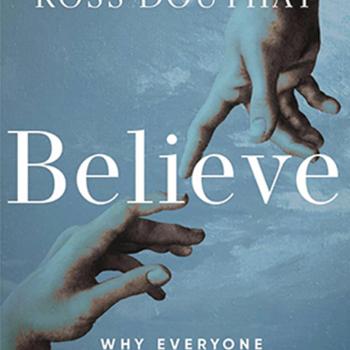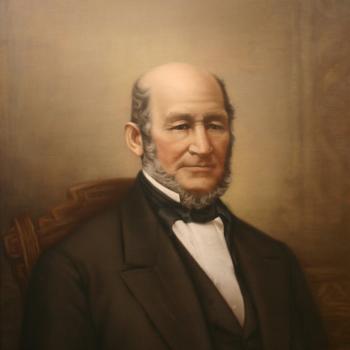Is Osama bin Laden in heaven? The question alone is startling. According to a recent CNN opinion poll, 61 percent of the American public believes Osama bin Laden took a direct route downstairs. An eye-catching New York Daily News headline exclaimed what was apparently on many people's minds: "Rot in Hell!"
It's difficult to imagine—and for good reason—that the most notorious terrorist in recent memory is enjoying eternal communion with the Father, Son and Spirit.
But let's try a hypothetical, highly speculative thought experiment. Imagine that on the day prior to Osama's death, he opened up a copy of the New Testament, read a portion of the gospels, repented of his sins and trusted in Christ for salvation. Imagine then that he planned, in the days and weeks and months and years ahead, to live out his new faith, beginning with a public confession and a plea for forgiveness to all he had wronged. But then, the next night, he's dead. He entered eternity.
Granted, this scenario does not seem likely. There's no evidence it actually happened. Yet it could have happened. Reflecting on this serves a couple purposes.
1. It challenges our belief in the radical nature of the Gospel of grace and of the potential effectiveness of Christ's death and resurrection for sin. Do we really believe that Jesus Christ died for the sins of the whole world (John 3:16)? Do we really believe that God desires that all should be saved (1 Tim. 2:4; 2 Pet. 3:9)? Do we really believe that everyone is a sinner and that no one, literally no one, is outside of the reach of God's grace (Rom. 3:23)? Do we really believe that redemption and salvation can happen in an instant, even at the very end of one's life, just as it did with the thief on the cross (Luke 23:43)?
2. It challenges the ways in which we relate to our "enemies" and to those who have wronged us (or those we love). Our natural temptation is to think that some enemies will always remain so. Deep inside, we may believe there are some people for whom Christ really didn't die (John 3:16), some enemies and persecutors we really aren't called to love and pray for (Matt. 5:43). Yet we are not the ones who decide whom Christ died for; we do not decide who is forgiven; and we do not get to decide which enemies we should pray for and which we should not.
3. The thought experiment challenges the ways in which we draw clean and final borders between good and evil. Yes, there is evil in the world. There are horribly sinful, "wicked" people who do extraordinary harm. Yes there are enemies, globally and personally. To paraphrase Solzhenitsyn, the line that separates good and evil cuts through each of our hearts. In the new heaven and new earth (Rev. 21), we will learn to love people we once despised. Isaiah's prophetic vision puts Israel, Egypt, Assyria and Babylon in peaceful, harmonious relationship underneath the rule of God's sovereignty, love and perfect shalom. Prophetic eschatology also puts Americans, Iraqis, Israelis, Palestinians, North and South Koreans together in peace under the eschatological renewal of God's creation. In order for peace and reconciliation to take place, those who formerly were enemies with one another will need to occupy the same territory. Perhaps it will be awkward at first, but it is, biblically, a promise.
4. It challenges a common perception that there is no judgment and justice after death for those who are saved in Christ. A major hurdle in our thought experiment is the notion that Osama bin Laden could escape punishment for his crimes against humanity and against God. Surely his physical death, quick and relatively painless as it was, cannot be the only punishment for his sins? If Osama bin Laden upon his death were taken to everlasting life in the company of God, and never suffered punishment for all the wrongs he committed in the life that just came to an end, would this not be what theologians have called "cheap grace"?
At this point, theologically astute readers may recognize that our thought experiment heavily assumes a "penal substitution" model of the atonement. That is, Christ's death has the primary effect of reconciling the relationship between individuals and God. For those who repent and place faith in Christ, God forgives their sins, because justice was served at the cross. But our thought experiment (that a mass murderer could be forgiven of his sins by a last-ditch change of heart) suggests why a view of salvation that relies exclusively on a penal substitution model does not capture the full significance of the Bible's portrait. Standing all on its own, penal substitution seems insufficient for the establishment of justice, righteousness and horizontal reconciliation (reconciliation between creatures). If Osama could be forgiven his sins simply by "saying a prayer" and turning to Jesus, it's hard to avoid a nagging sense that social, corporate justice has not been served. Without justice, can there be reconciliation? Without reconciliation, can there be peace?





